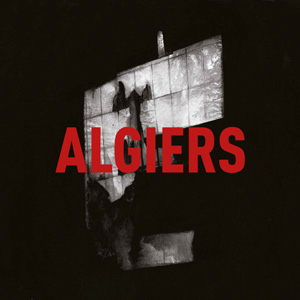
BY ALTUĞ KARAKURT (EE/III)
altug.karakurt@ug.bilkent.edu.tr
This week, I would like to talk about the recent early-career releases of two American musical prodigies. Despite their very different styles, these artists have one important aspect in common: their ambition. With their amazing debut albums, they have both proven themselves at a very young age and gotten me very excited about their upcoming projects.
Kamasi Washington – The Epic
 Kamasi Washington is a jazz saxophonist from California. Although he released his debut “Epic” just this May, he is already recognized in the jazz community as one of the most promising young musicians of our era. Kamasi has won numerous music awards, played at major jazz festivals and accompanied jazz virtuosos, thanks to his strong academic background in saxophone and ethnomusicology.
Kamasi Washington is a jazz saxophonist from California. Although he released his debut “Epic” just this May, he is already recognized in the jazz community as one of the most promising young musicians of our era. Kamasi has won numerous music awards, played at major jazz festivals and accompanied jazz virtuosos, thanks to his strong academic background in saxophone and ethnomusicology.
Had he waited to produce a debut album until relatively late in his career, Kamasi might have released an influential masterpiece. As it is, “The Epic” is almost three hours long, divided into three parts, and the entire runtime is filled with some of the greatest instrumentations I have heard in a long time. Kamasi collaborates with a group of talented young musicians like himself, including Thundercat, Miles Mosley and Ronald Bruner Jr. These artists are all known for their appearances on the albums of influential artists such as Marcus Miller, Chris Cornell, Flying Lotus and Kendrick Lamar.
The tracks in “The Epic” are all very complex jazz compositions, but Kamasi does a great job of keeping the music accessible to a wide range of listeners. Despite the dense musicianship, one can easily listen to the album from start to finish without getting tired of it. To digest the material thoroughly though, one needs to listen to this album straight through a few times to catch the fine details hidden in the sophisticated sound textures. Taken together, these two features make this album a great fit both for dedicated listening and for background music. In addition to the obvious emphasis on the saxophone, the smooth, polyrhythmic drumming drives the songs and ties the complex tracks of instruments together perfectly. In addition to the many great instrumental tracks on the album, the closer of the first part, “The Rhythm Changes,” features an amazing vocal performance and is easily one of my favorites due to the harmony of Patrice Quinn’s vocals with the instrumentation.
I’m not very knowledgeable about jazz music, but even so, I have listened to quite a number of records, and among them, “The Epic” stands out as one that has managed to find a perfect balance between musical density and accessibility.
Algiers – Self-Titled
 Algiers is from Atlanta, Georgia, and is one of the most unique bands to appear in the last few years. Making great use of their southern identity, the band employs a very unusual musical style, composed of gospel, experimental/post-rock and a pinch of electronic music to tie everything together. Their self-titled debut was released last June and immediately attracted the music community with its uniquely dark, haunting sound and the relevance of the album’s theme.
Algiers is from Atlanta, Georgia, and is one of the most unique bands to appear in the last few years. Making great use of their southern identity, the band employs a very unusual musical style, composed of gospel, experimental/post-rock and a pinch of electronic music to tie everything together. Their self-titled debut was released last June and immediately attracted the music community with its uniquely dark, haunting sound and the relevance of the album’s theme.
The album starts off with a deep noise, followed by humming and clapping while gospel-influenced vocals set the tone for what is to follow with the lines “And the chained man/Sang in a sigh/I feel like going home,” immediately surrounding the listener with a very dark atmosphere. The entire album revolves around a hard-hitting narrative of African-American slavery. More interestingly, the musical style is much more influential in the narration than are the lyrics. This album is as black as it can get, in every sense of the word. Algiers borrows the compositional approach of early blues and African-American music and blends that mentality with dark sound sculptures. The thick basslines, over-distorted guitars and haunting electronic synthesizers build tension and capture the listener, while the clapping, tambourines, humming and gospel keys and vocals take the listener back to cotton fields stained with blood.
This album is a very strong reminder of the past and reflects equally on the present by drawing parallels between the experience of African-Americans today and that of their slave forebears. Discrimination and violence against African-Americans are still very much in existence, and in view of the countless incidents of police brutality last year, the album delivers a very strong and relevant message.
The harmony of Algiers’s sound and narrative is truly one of a kind. This is what makes an album a complete, multidimensional piece of work rather than a mere collection of songs. I’m very impressed by the fact that such a comprehensive work was released as a debut album. I’m looking forward to any material Algiers will be putting out in the future.
